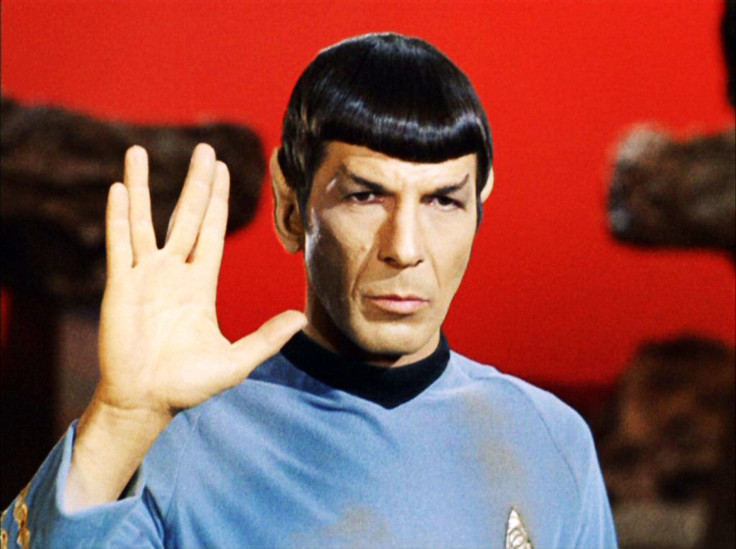As the Sept. 24 premiere of Star Trek: Discovery approaches, Player.One will profile essential episodes to watch for a better understanding of the characters, species and history informing the first Star Trek series in over a decade.
Star Trek: Discovery premieres Sept. 24. It’s exciting: the first Trek series since Enterprise shuttered in 2005; 18 years after the end of Star Trek: Deep Space Nine. To prepare, Player.One has been conducting a planetary survey, rewatching essential episodes across Star Trek series (no VOY or ENT, sorry) to better understand the legacy Star Trek: Discovery will inherit. Together they map the history, characters, promise, perils, traditions and storytelling tricks that will animate Star Trek: Discovery.
“The Cage”
Star Trek
There is unlikely to be a larger gulf in the history of feminism on TV than between “The Cage” and Star Trek: Discovery: from Captain Pike’s “I can’t get used to having a woman on the bridge” to the USS Shenzhou, captained by Philippa Georgiou (Michelle Yeoh) and her first mate, Michael Burnham (Sonequa Martin-Green). “The Cage,” a rejected first pilot with a radically different cast, may come to us from a parallel dimension where Star Trek sucks, but it’s still an origin story that a later, better Spock (in “The Cage” he emotes, it’s gross) would consider fascinating.
“Errand of Mercy”
Star Trek
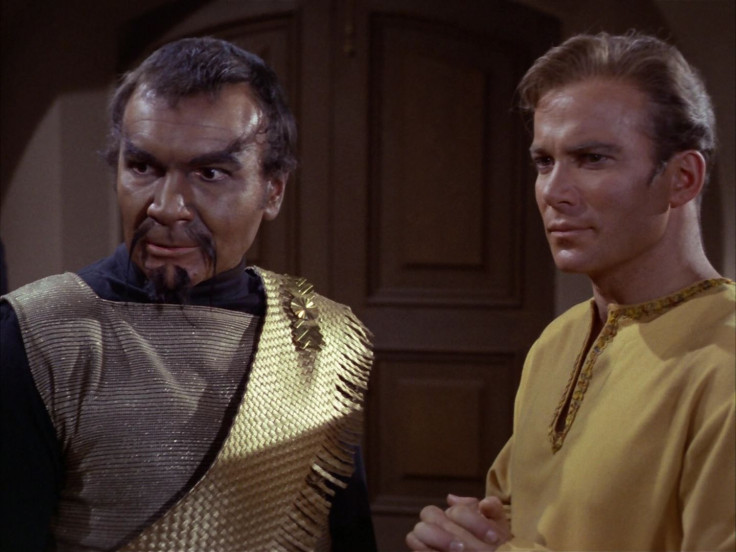
Season 1, Episode 27
The first Klingon episode, “Errand of Mercy,” introduced a much different adversary, nothing like the religious warrior culture of Star Trek: Discovery’s Klingons. But the core metaphor, Klingons as our ideological enemies (or tense allies), always reflecting our brutality back at us, was there from the beginning. The Klingons may not be stand-ins for Cold War Russians anymore, but they continue to represent those same anxieties. Kor and Kirk learn they have much in common as they tussle for control over the seemingly harmless Organians. “Negotiations with the Klingon Empire are on the verge of breaking down,” Kirk tells Spock on the bridge of the Enterprise, the first of many similar sentiments voiced by future starship captains.
“Journey to Babel”
Star Trek
Season 2, Episode 10
It will be interesting to see how Sarek interacts with Michael Burnham on Star Trek: Discovery, because he sure doesn’t get along with his son, Spock. Beyond the strained father-son relationship, which would continue into Star Trek: The Next Generation, “Journey to Babel” introduced the Tellarites and Andorians, the two species who formed the United Federation of Planets alongside the Vulcans and Humans. That makes “Journey to Babel” not just a personal look into Spock’s family (a major part of Star Trek: Discovery) but also the blossoming of a larger galactic context outside of Starfleet.
“Sarek”
Star Trek: The Next Generation
Season 3, Episode 23
Sarek is not very likeable (though his appearances in the Star Trek movies made his love for Spock clear), but no one deserves the suffering he experiences in the last years of his life, losing his emotional control and Vulcan logic to Bendii Syndrome. “Sarek” is the rare Star Trek episode where utopia is thwarted. Sometimes things just end very badly. “Sarek” sets the stage for one of the most emotionally resonant moments in Star Trek history (two seasons later, in “Unification II”), as Sarek’s mind meld with Jean-Luc Picard allows the Enterprise captain to share with Spock the father he never knew. It’s a narrative richness achieved over decades — powers now passed to Star Trek: Discovery.
“Yesteryear”
Star Trek: The Animated Series
Season 1, Episode 2
Spock travels back in time to dispense wisdom to his younger self in this sorta sequel to TOS highlight “The City on the Edge of Forever.” Yes, the animation is stilted, 70s crap, but Star Trek: The Animated Series never had its imagination limited by live-action budgets. Even many of the movies never topped the “Yesteryear” depiction of idyllic Vulcan. And there’s no better episode for understanding how Star Trek: Discovery’s Michael Burnham grew up as a human child among Vulcans.
“Lower Decks”
Star Trek: The Next Generation
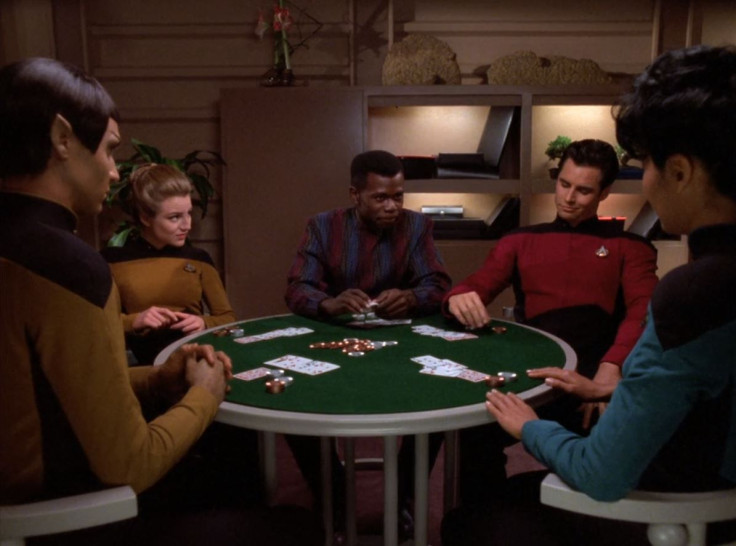
Season 7, Episode 15
Star Trek: Discovery will be the first time a captain isn’t the lead character in a Star Trek series, putting more narrative focus on science officers and lower-ranks, telling the stories beyond the bridge. There are worse models than “Lower Decks,” a Season 7 episode of TNG that backgrounds Picard, Deanna Troi, William Riker and Geordi LaForge to focus on four recent Starfleet Academy grads (and a civilian worker) serving aboard the Enterprise. Unlike every other Star Trek episode, with the viewer riding shotgun with the decision makers, “Lower Decks” captures what it feels like to serve Starfleet’s grand purpose whether you know what’s going on or not.
“Rightful Heir”
Star Trek: The Next Generation
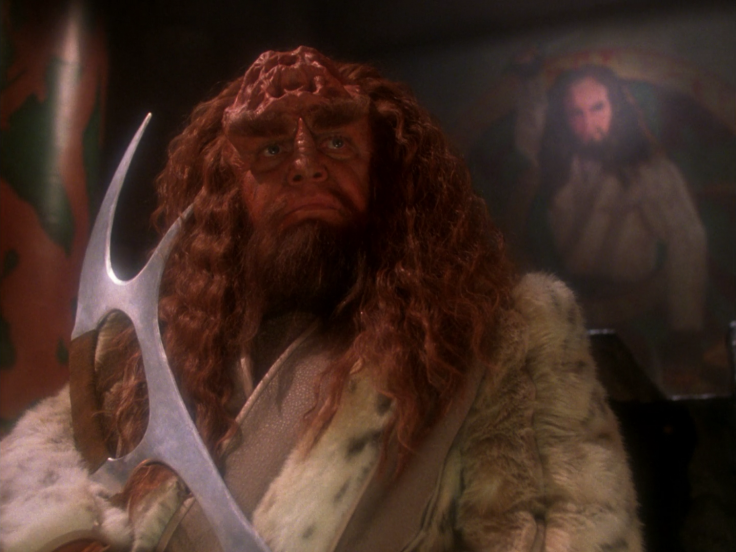
Season 6, Episode 23
Religion will be just as important to the Klingons of Star Trek: Discovery as it will be for Worf over a century later. And no understanding of Klingon religion is complete without Kahless, who created the Klingon Empire, wrote their most important scriptures and awaits their fallen warriors at the gates of Sto-vo-kor. Since the Klingon creation myth ends with them killing their own gods, Kahless is the next best thing. In “Rightful Heir” Kahless returns to save his people, but is it the real Kahless? It’s a question T’Kuvma and his Klingons won’t have to worry about on DSC. Zealotry will have to suffice.
“Trials and Tribble-ations”
Star Trek: Deep Space Nine
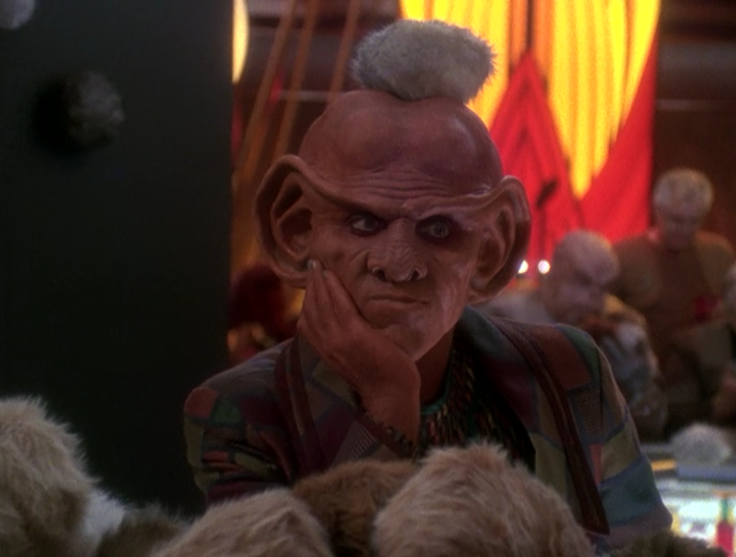
Season 5, Episode 6
Star Trek has built quite a confusing timeline in 50 years. Deep Space Nine’s “Trials and Tribble-ations” shows how to have fun with it. Dropping the DS9 crew into the events of Star Trek: The Original Series episode “The Trouble with Tribbles” results in a gush of nostalgic tribute. But imagining it as a series would be sickly sweet, like gorging on sprinkles. By placing itself in the original Star Trek time period but radically updating the aesthetic, Star Trek: Discovery is aiming at the benefits of both the old and new.
“A Private Little War”
Star Trek
Season 2, Episode 19
More than just growing ridges, the Klingon metaphor has shape-shifted over the years too. In “A Private Little War” Klingons and the Federation engage in a proxy war mirroring the contemporary traumas in Vietnam. It may not do the history justice, essentially shrugging off the mass suffering America was inflicting on Southeast Asia, but “A Private Little War” shows Star Trek’s value as a time capsule, capturing the dialogue of a social debate, then throwing in a gorilla with a unicorn horn. What will Star Trek: Discovery capture about 2017 for later generations?
Star Trek VI: The Undiscovered Country
If there’s one movie required to understand Star Trek: Discovery, it’s Star Trek VI: The Undiscovered Country. Not only was it a major influence on Discovery ’s creator, Bryan Fuller, but The Undiscovered Country ’s writer and director, Nicholas Meyer, served as consulting producer on the upcoming series and writer of its second episode, “Battle at the Binary Stars.” The Undiscovered Country is also the best-yet depiction of Klingons, directly analogizing the peace process between the United Federation of Planets and the Klingon Empire to Détente and the subsequent collapse of the Soviet Union.
There are many more episodes missing from this list that could further enlighten and inform our understanding of where Star Trek: Discovery fits into 51 years, 13 movies and 725 episodes of Star Trek. You could watch interstellar sex trafficker Harry Mudd in Original Series episodes “Mudd’s Women” and “I, Mudd,” though it looks like Rainn Wilson will make the character a completely different variety of goony in DSC. Discovery episode director Jonathan Frakes recently revealed there will be a Mirror Universe episode: check out “Mirror, Mirror” for that vintage Spock goatee, or the consequences of a parallel evil dimension explored in Deep Space Nine episodes like “Crossover” or “Through the Looking Glass.” Or watch any Klingon episode of Star Trek: The Next Generation. There’s no real wrong way to prepare for Star Trek: Discovery, just enjoy some vintage Trek and LLAP.
- Richly redesigned Klingons
- Complex and explicable motives
- Great new Starfleet characters
- Incredible production design
- Generic space combat and action
- Too many flashbacks
- Eschews subtext, doesn't put enough faith in the audience


